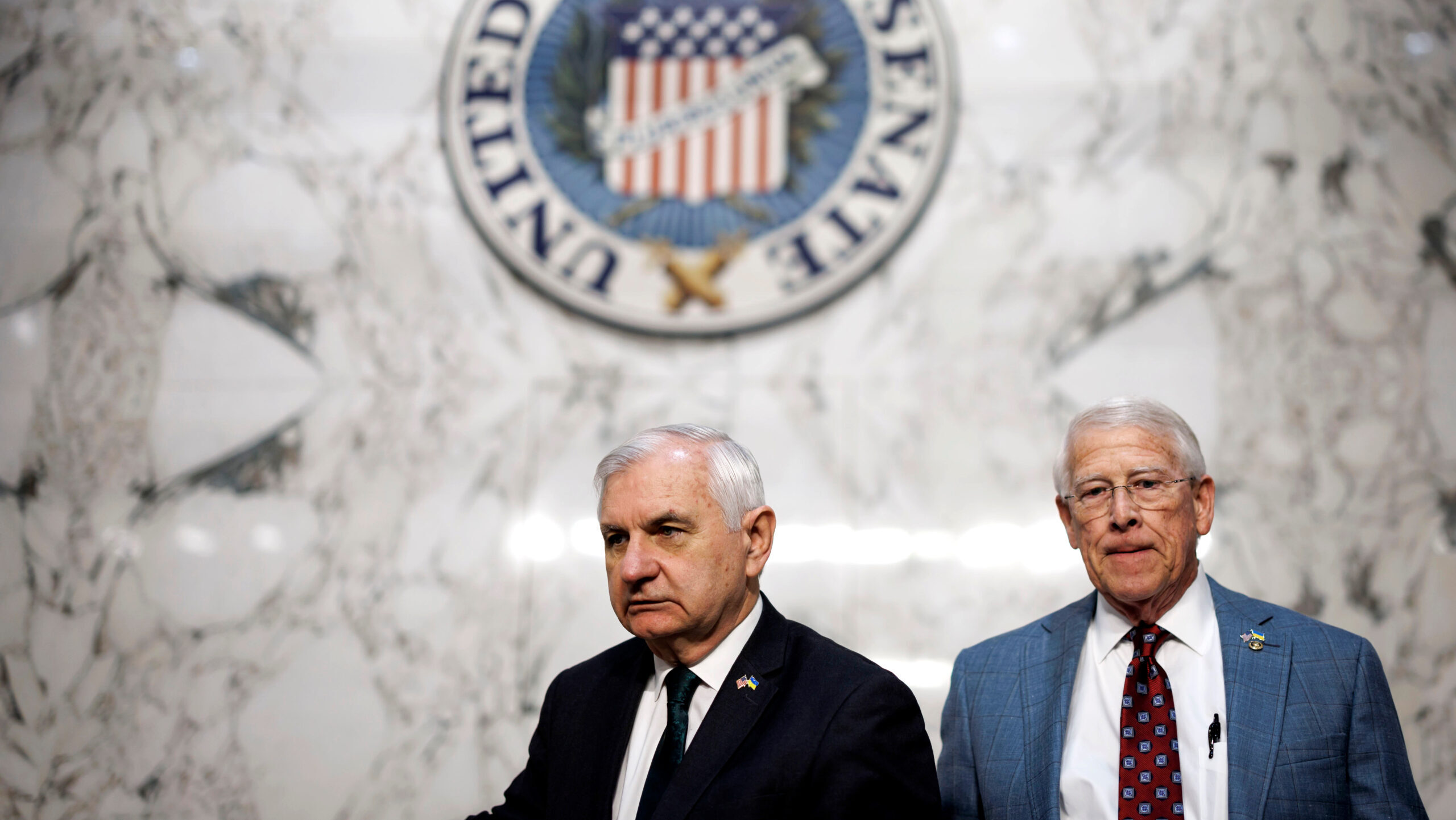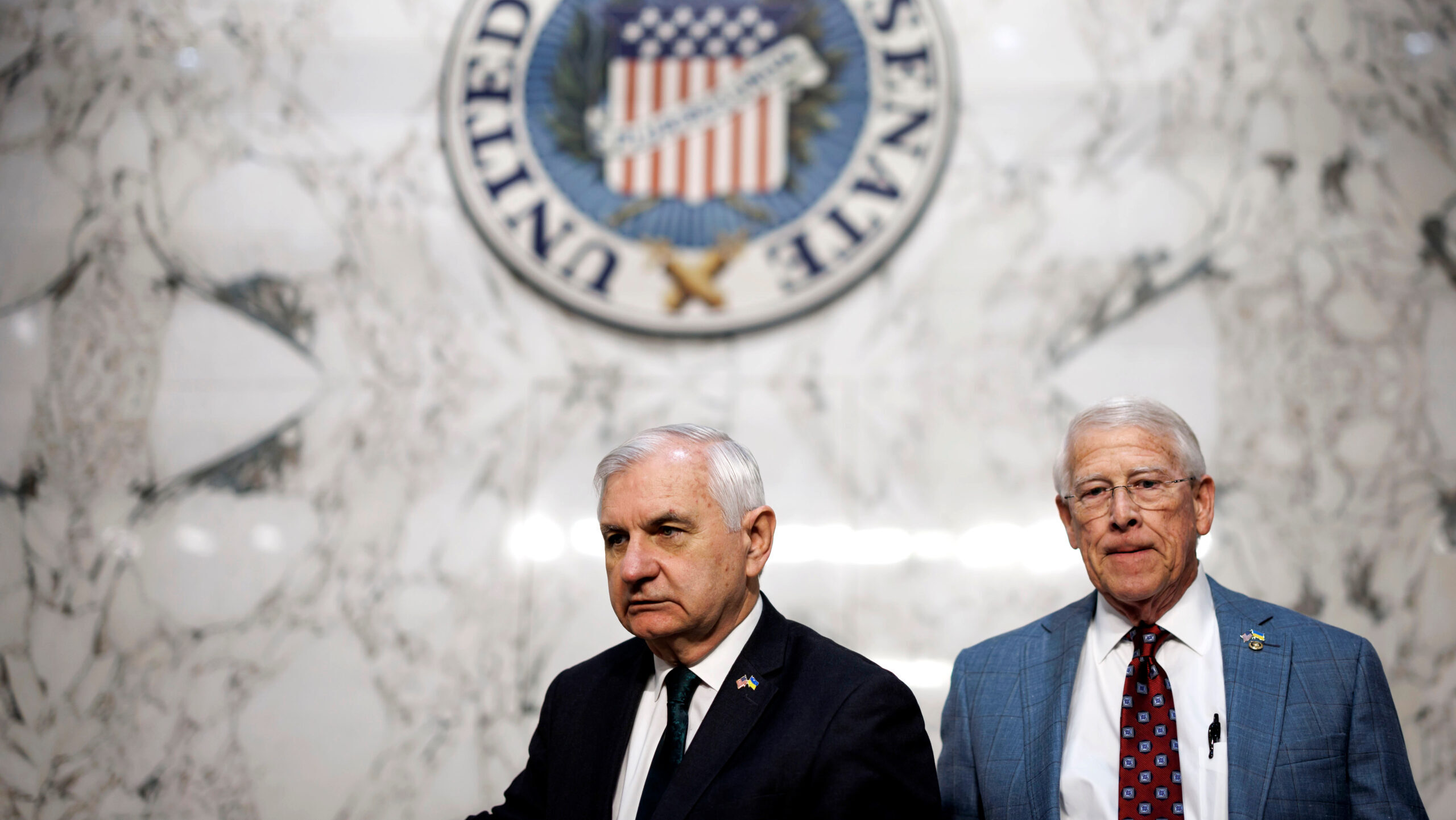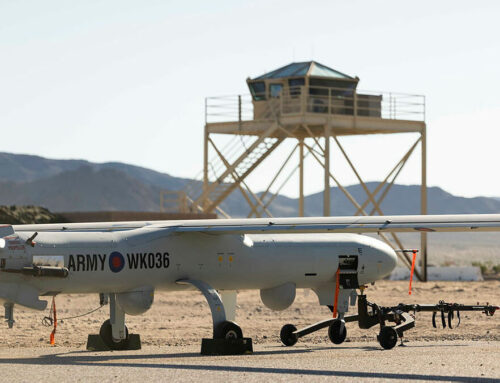
Senator Jack Reed, a Democrat from Rhode Island and chairman of the Senate Armed Services Committee, left, and Senator Roger Wicker, a Republican from Mississippi and ranking member of the Senate Armed Services Committee, arrive for a hearing in Washington, DC, US, on Thursday, May 2, 2024. (Photographer: Ting Shen/Bloomberg via Getty Images)
WASHINGTON — The Senate overwhelmingly passed the fiscal 2025 National Defense Authorization Act today, with Democrats coming out in droves to approve the $884 billion bill despite controversial transgender care provisions.
The NDAA, which passed in a 85-14 vote, corresponds to a $895 billion topline for defense spending, adhering to the budgetary limits set in last year’s Fiscal Responsibility Act. That’s a departure from the Senate Armed Services Committee’s initial version of the bill, which would have broken the FRA and boosted the defense topline to $923.3 billion.
The bill now moves to the desk of President Joe Biden, who has indicated he’ll sign it into law.
During a speech on the Senate floor ahead of the vote, SASC’s top Republican Roger Wicker, who spearheaded the push for additional funds, said the topline increases “should have been part of the bill today.”
“Regrettably we missed an opportunity to strengthen the president-elect’s hand as he takes office in a precarious world situation,” he said.
SASC Chairman Jack Reed, D-R.I., said the concern from senators who wanted to see a higher defense topline “is well reasoned” given current threats, but noted that the creation of the FRA was demanded by House Republicans.
RELATED: House passes $884B NDAA despite transgender care ban controversy
The bill was widely adopted by Senate Democrats despite the last-minute inclusion of language that would block gender-affirming care that could potentially cause sterilization for the transgender children of servicemembers, which was inserted at House Speaker Mike Johnson’s behest. Only about half of House Democrats voted for the typically-bipartisan measure due to the Tricare restrictions.
In remarks ahead of the vote, Reed said he “disagrees strongly” with the inclusion of the provision and will continue to advocate for servicemembers and their dependents. However, “we have before us a very strong National Defense Authorization Act,” he added.
During a phone call with reporters ahead of the vote, Sen. Tim Kaine, D-Va., said Democrats successfully removed all of the anti-transgender provisions that were in earlier versions of the bill aside from the care ban for transgender minors and noted that he personally opposed that provision when it came before SASC for a vote. However, Kaine said the NDAA was ultimately “very, very strong for every last member of the military and their families,” noting the 14.5 percent pay raise for junior enlisted servicemembers and other quality of life improvements.
The bill authorizes $883.7 billion for fiscal year 2025, including $849.9 billion for Department of Defense programs. It also approves $33.3 billion for national security programs in the Department of Energy and the Defense Nuclear Facilities Safety Board, and $512.4 million for defense-related activities.
The NDAA permits the transfer of National Guard space units to the Space Force, restricts F-35 deliveries, imposes new design requirements for certain Navy ships, and allows the Air Force to retire aging A-10s, F-16s and F-15s. The bill also authorizes additional funds for a third Arleigh Burke destroyer and six more F-15EXs, among other plus-ups and spending cuts, but congressional appropriators will have the final say on approving the budget.
For a larger rundown of the bill’s funding recommendations and policy mandates, read this: What to know about what’s in the compromise NDAA











